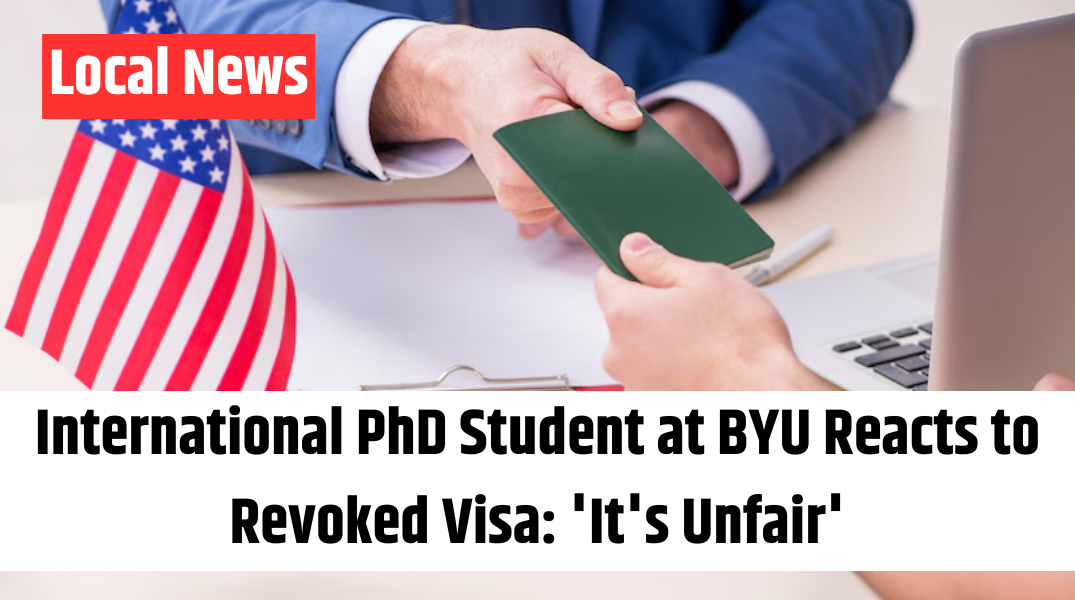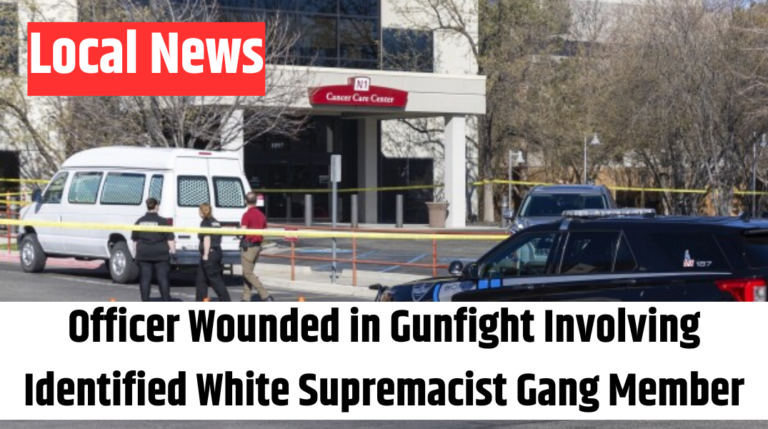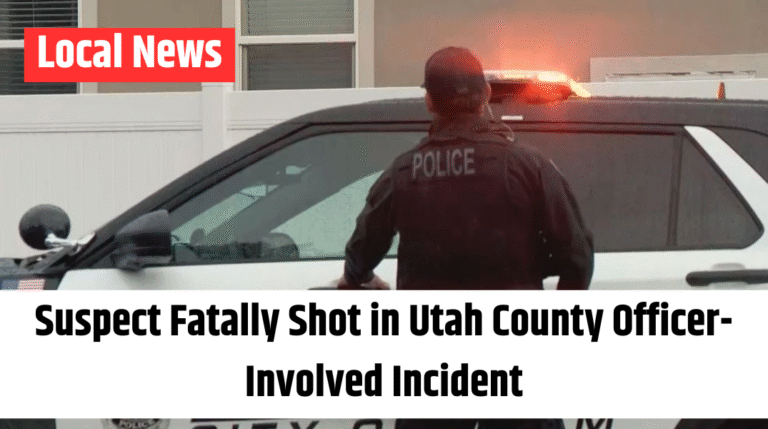
Suguru Onda, a PhD student nearing the end of his academic program at Brigham Young University (BYU), is facing an uncertain future after his student visa was unexpectedly revoked. Onda, who had been working on his research, now finds himself and his family caught in a predicament.
Onda received a notification from BYU’s international student office on April 8, informing him that his student status had been altered. He immediately sought clarification but was told that the university had not been provided any additional details and that his visa had been terminated without prior warning.
“I was shocked,” Onda told ABC4. “There was no notice, no explanation. It’s frustrating that we were left in the dark.”
Onda’s attorney, Adam Crayk, explained that the university had been informed that Onda’s criminal history contributed to the decision to revoke his status. Upon investigating, Crayk found that Onda had two speeding violations and a dismissed fishing citation—an issue he feels is being unfairly escalated. “This is not a matter of politics; it’s about fairness,” Crayk stated.
Onda and his family were given two choices: leave for Japan within a few weeks and reapply for an F-1 visa, or wait for months while the visa reinstatement process is underway. However, reapplying would entail a new process, including a review by a monitoring unit. Crayk expressed concern over this, suggesting the growing role of technology in visa decisions could be part of the problem. “Whether it’s AI or algorithms, monitoring thousands of visas at once means mistakes can happen. There should be human oversight before making such impactful decisions.”
Choosing to wait months for reinstatement would leave Onda unable to work, although he may remain in Utah during the process. The family, including Onda’s wife and five children, has not been to Japan for two years, and they had hoped to travel back this summer. “If we’re forced to leave in two weeks, all those plans will have to be canceled,” Onda shared.
Crayk is considering legal action, including filing for a temporary restraining order in federal court. This could compel a judge to review Onda’s case and potentially restore his visa status.
Onda, who is deeply concerned about the impact on his children’s education and his own academic goals, said, “I just want to finish my program and stay here for my family’s future.”
The issue of international students’ visa revocation has been in the spotlight recently, with some officials citing potential ties to criminal activity or participation in political protests as reasons for cancellations. The University of Utah has acknowledged that some students’ visas were revoked without direct communication from federal authorities, making the situation even more confusing for both universities and the students themselves.
Visa revocations can happen for various reasons, including failure to comply with nonimmigrant status, criminal records, or other legal violations. The F-1 visa, one of the most common types for international students, requires students to maintain full-time enrollment in an approved academic program and meet financial support criteria.
International students in Utah are being urged to ensure their immigration status is in order. The University of Utah is advising its international community to keep their immigration documents updated and readily accessible. Additionally, students are encouraged to seek advice from national organizations such as the ACLU, the National Immigration Law Center, and the Immigration Advocates Network for further assistance.
As Onda and his family continue to navigate their uncertain future, they hope for a swift resolution to the challenges they are facing.




